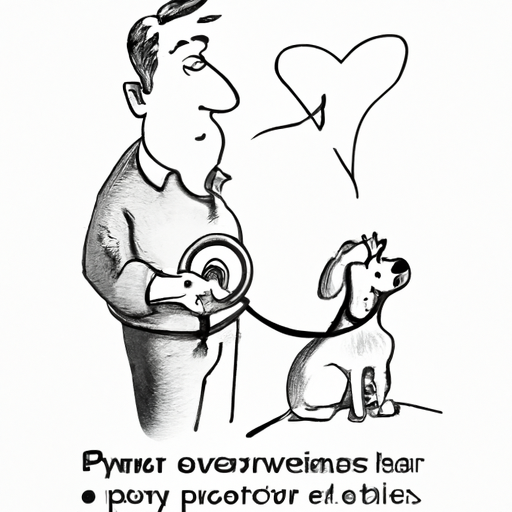Hello, dear caregivers. Let’s delve into this canine conundrum that may be causing you sleepless nights.
1. Understanding a Dog’s Normal Heart Rate
First, you need to understand what a normal heart rate for a dog is. Just like humans, heart rates in dogs can vary based on several factors such as size, age, and overall health.
- Small dogs and puppies typically have a faster heart rate, between 90-120 beats per minute (bpm).
- Large dogs, on the other hand, typically have a slower heart rate, around 60-100 bpm.
Here’s a handy table to help you understand better:
| Size | Normal Heart Rate |
|---|---|
| Small Dogs & Puppies | 90-120 bpm |
| Large Dogs | 60-100 bpm |
2. Reasons for an Increased Heart Rate
If you’ve noticed your furry friend’s heart seems to be beating faster than usual, don’t panic just yet. There are numerous reasons your dog’s heart may be beating fast, including:
- Excitement or Anxiety: Just like in humans, a dog’s heart rate can increase when they are excited or anxious.
- Exercise: After a good romp or chase, your dog’s heart will definitely be pumping faster.
- Heatstroke: In hot weather, dogs can easily overheat, leading to increased heart rate.
- Illness or Pain: If your dog is in pain or feeling unwell, their heart rate may increase.
3. When to Seek Veterinary Assistance
Now that you know the possible reasons for your dog’s increased heart rate, it’s critical to understand when it’s time to seek professional help. Here’s a simple guideline:
- If the fast heart rate persists even after your dog has calmed down or cooled off.
- If it’s accompanied by other symptoms like lethargy, loss of appetite, or changes in behavior.
- If your dog seems to be in pain or discomfort.
4. Prevention and Care
Prevention is always better than cure. Here are some steps you can take to prevent a fast heart rate in your dog:
- Regular exercise: Keep your dog active but avoid extreme physical exertion, especially in hot weather.
- Healthy diet: Provide a balanced diet to maintain your dog’s overall health.
- Regular Vet Check-ups: Regular health checks can help identify and treat any potential health issues early.
5. FAQs
Finally, here are some frequently asked questions to further assist you in understanding your dog’s heart rate.
Q1: Is a fast heart rate dangerous for my dog?
A: While a faster-than-normal heart rate isn’t always a cause for concern, consistent rapid heart rate or one accompanied by other symptoms could indicate a health issue.
Q2: How can I measure my dog’s heart rate?
A: You can measure your dog’s heart rate by placing your hand on their chest, just behind the elbow. Count the number of beats in 15 seconds and multiply by 4 to get the bpm.
Q3: Can dogs have heart diseases?
A: Yes, dogs can suffer from heart diseases. Some breeds are more prone than others, but any dog can develop heart disease.
Remember, you are the first line of defense when it comes to your dog’s health. Stay vigilant, and when in doubt, always consult with a veterinarian.



